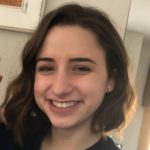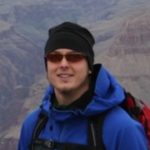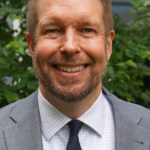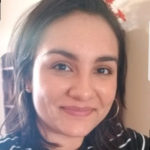
- This event has passed.
Collab Lab 50: Community Engaged Science
Thursday November 10, 2022 @ 5:30 pm - 8:30 pm
What new possibilities do students see when their work supports a broader effort?
Where are there opportunities to connect the work of students to support community engaged science efforts in Milwaukee? How might this broaden students’ perspectives on who does science, and when and where that can happen? What needs to be in place for students to see that they can make a useful contribution on issues they care about? Join us on November 10th to talk through ideas and possibilities with K-12 colleagues and community partners from industry, higher-ed and area nonprofits.
Agenda
5:30 – 6:00 Grab something to eat and drink, say hello
6:00 – 6:15 Introductions
6:15 – 8:00 Let’s talk through some ideas
8:00 – 8:30 Share out and wrap up
Food and beverage will be provided. There is no charge for participation but space is limited!
Featured Participants
Among others, you’ll have a chance to talk with:
Jessica Knackert – Volunteer Coordinator, Wisconsin Department of Natural Resources
 Jessica is a volunteer coordinator who leads educator engagement for the Snapshot Wisconsin project. Snapshot Wisconsin is a community science project at the Wisconsin Department of Natural Resources focused on monitoring wildlife through a statewide network of trail cameras.
Jessica is a volunteer coordinator who leads educator engagement for the Snapshot Wisconsin project. Snapshot Wisconsin is a community science project at the Wisconsin Department of Natural Resources focused on monitoring wildlife through a statewide network of trail cameras.
Peter Lenaker – Physical Scientist, USGS
 Pete works out of the Upper Midwest Water Science Center in Madison, Wisconsin, bringing his expertise in microplastics, waterborne pathogens, water quality, aquatic ecosystems, water resources, and nutrient biogeochemistry to bear on issues raging from the spatial distribution of microplastics, to using optical properties to predict and estimate wastewater contamination, to the prioritization of pharmaceutical contaminants. He is particularly interested in enhancing our understanding of the sources of microplastics to aquatic ecosystems and how to efficiently and accurately quantify this diverse group of contaminants.
Pete works out of the Upper Midwest Water Science Center in Madison, Wisconsin, bringing his expertise in microplastics, waterborne pathogens, water quality, aquatic ecosystems, water resources, and nutrient biogeochemistry to bear on issues raging from the spatial distribution of microplastics, to using optical properties to predict and estimate wastewater contamination, to the prioritization of pharmaceutical contaminants. He is particularly interested in enhancing our understanding of the sources of microplastics to aquatic ecosystems and how to efficiently and accurately quantify this diverse group of contaminants.
Christopher Simenz – Practicum Coordinator, Clinical Professor, Marquette University
 Dr. Simenz has spent 20 years in community engaged research on wellness, social determinants of health, physical activity, and performance. Research, policy, and advocacy work has developed partnerships amongst a diverse group of populations and is focused on policy and systems change in PA and access to wellness for marginalized populations. Our research team has developed and written wellness policy for the United Neighborhood Centers of Milwaukee (UNCOM), Milwaukee Public Schools, and the Boys & Girls Clubs of Greater Milwaukee. He is actively engaged in promotion of equity in housing, food insecurity and healthcare access as a faculty member in the MCW Doctor of Public Health Program, as a board member of StreetLife Communities supporting those experiencing homelessness, and as a member of the North Shore Board of Health.
Dr. Simenz has spent 20 years in community engaged research on wellness, social determinants of health, physical activity, and performance. Research, policy, and advocacy work has developed partnerships amongst a diverse group of populations and is focused on policy and systems change in PA and access to wellness for marginalized populations. Our research team has developed and written wellness policy for the United Neighborhood Centers of Milwaukee (UNCOM), Milwaukee Public Schools, and the Boys & Girls Clubs of Greater Milwaukee. He is actively engaged in promotion of equity in housing, food insecurity and healthcare access as a faculty member in the MCW Doctor of Public Health Program, as a board member of StreetLife Communities supporting those experiencing homelessness, and as a member of the North Shore Board of Health.
Bernardo Traversari – Director of Science Outreach, Edgewood College
 Bernie leads the College’s science education and community engagement programs, including The ROSE (Resources and Opportunities in Science Education) Project, which aims to provide parents from under-represented backgrounds with resources and opportunities in science education for themselves and their children. Through the ROSE Project, the College partners with community centers and schools to host science-based workshops and cohort-based science leadership training programs focused on caregivers and staff. This allows families to experience science together and creates a network of science advocates who are well equipped to support their kids’ academic and professional career plans in the sciences. Currently, the ROSE Project is expanding to Milwaukee after 15 successful years of implementation in Madison.
Bernie leads the College’s science education and community engagement programs, including The ROSE (Resources and Opportunities in Science Education) Project, which aims to provide parents from under-represented backgrounds with resources and opportunities in science education for themselves and their children. Through the ROSE Project, the College partners with community centers and schools to host science-based workshops and cohort-based science leadership training programs focused on caregivers and staff. This allows families to experience science together and creates a network of science advocates who are well equipped to support their kids’ academic and professional career plans in the sciences. Currently, the ROSE Project is expanding to Milwaukee after 15 successful years of implementation in Madison.
Adriana Vázquez – Director of Education & Public Programs, Milwaukee Public Museum
 Adriana is an MPS graduate and educator. As a classroom teacher, she partnered with the Museum’s educators to create curriculum based on exhibits and coordinate field trips. She strongly believes in the unique ability museums have to provide educational experiences that reinforce the learning happening in classrooms, and that museums should be a resource for formal educators in K-12+ and engage curiosity and excitement in learners of all ages. In her new role with the Museum, she looks to build out those opportunities.
Adriana is an MPS graduate and educator. As a classroom teacher, she partnered with the Museum’s educators to create curriculum based on exhibits and coordinate field trips. She strongly believes in the unique ability museums have to provide educational experiences that reinforce the learning happening in classrooms, and that museums should be a resource for formal educators in K-12+ and engage curiosity and excitement in learners of all ages. In her new role with the Museum, she looks to build out those opportunities.


